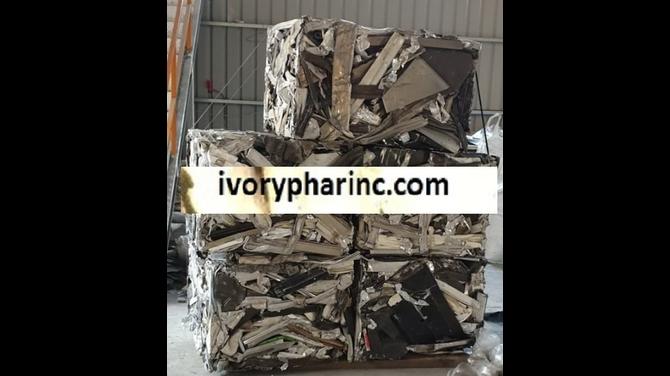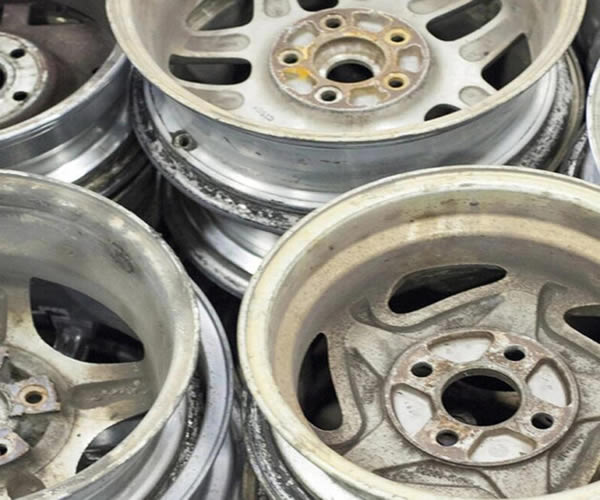The Importance of Aluminum Extrusion Scrap Recycling: A Sustainable Process

Aluminum is one of the most sustainable and recyclable
materials in the world. Unlike many other metals, aluminum can be 100% recycled
without losing any of its inherent properties. This makes it an invaluable
resource across industries, offering significant benefits for both the
environment and economy. Recycling aluminum not only conserves natural
resources but also drastically reduces energy consumption.
When aluminum scrap is recycled into secondary material—commonly
known as "green aluminum"—it can reduce energy use by up to 90%
compared to producing new aluminum from raw bauxite ore. This substantial
reduction in energy consumption lowers production costs and minimizes the
environmental impact associated with mining and refining bauxite, the primary
source of aluminum.
As the demand for aluminum extrusion scrap supplier continues to rise across various sectors, industries are increasingly turning to recycled aluminum for sustainable and cost-effective solutions. However, one of the main challenges manufacturers face is ensuring the purity of recycled aluminum. Contaminants can affect the quality of the final product, making it crucial for manufacturers to source high-quality secondary materials.

Sorting plays a pivotal role in maintaining aluminum’s purity during the recycling process. Advanced technologies such as spectrometry and eddy current separation are used to efficiently separate aluminum from other materials. This ensures that reprocessed aluminum meets the stringent quality standards required for industrial applications. As the need for lightweight, high-performance materials grows, aluminum recycling will play an increasingly important role in meeting that demand sustainably.
To access high-quality aluminum scrap, it’s essential for
buyers to partner with reputable suppliers. Choosing the right supplier ensures
the quality and usability of recycled aluminum, ultimately impacting the
performance of the final products. Below, we delve into the aluminum extrusion
process and its diverse applications in greater detail.
What is Aluminum Extrusion?
Aluminum extrusion is a manufacturing process that shapes
aluminum alloys into specific profiles by forcing them through a die. This
method allows the creation of complex cross-sectional shapes with impressive
strength and durability.
The process begins with heating a solid aluminum billet and
pushing it through a mold or die to form the desired shape. While the extrusion
process reshapes the aluminum, it does not alter its composition, ensuring that
the aluminum retains its physical and chemical properties. Once extruded,
aluminum is well-suited for a wide range of applications.
Extruded aluminum is highly valued in industries such as
construction, automotive, aerospace, and consumer goods due to its lightweight
nature, corrosion resistance, and versatility. From structural components to
intricate decorative trims, aluminum extrusion plays a vital role in modern
manufacturing.
Aluminum extrusion is used to produce a wide range of
products across various industries. Some of the most common items manufactured
through this process include:
- Window
Frames: Known for their strength, durability, and corrosion
resistance, aluminum window frames are widely used in both residential and
commercial buildings.
- Aluminum
Trays: Lightweight, recyclable, and cost-effective, aluminum trays are
commonly used for food packaging and storage.
- Cooking
Sheets: Aluminum’s excellent heat conductivity makes it ideal for
baking sheets and cookware.
- Door
Frames: Aluminum door frames offer both structural integrity and
long-lasting durability.
- Toys:
Many children's toys incorporate extruded aluminum for its lightweight and
sturdy characteristics.
- Car
Frames & Automobile Parts: The automotive industry relies heavily
on aluminum extrusion to manufacture vehicle frames, bumpers, engine
components, and heat exchangers.
- Electronic
Components: Aluminum’s ability to dissipate heat efficiently makes it
a preferred material for electronic enclosures and heat sinks.
These products undergo a precise extrusion process where raw
aluminum billets are heated, pushed through a die, and then cut and shaped into
their final form. This method ensures high levels of precision, durability, and
efficiency in manufacturing.
Grades of Aluminum Used in Extrusion
Different grades of aluminum are employed in the extrusion
process, each offering specific properties that make them suitable for distinct
applications. Below are some of the most common grades used:
- 6063
Aluminum: Often referred to as "architectural aluminum,"
this grade is known for its smooth finish and excellent corrosion
resistance. It is commonly used for window and door frames, structural
tubing, pipe fittings, and electrical conduits. Its superior surface
finish makes it a top choice for architectural applications.
- 6061
Aluminum: This alloy contains higher levels of magnesium and silicon,
enhancing its strength and durability. It’s used in applications requiring
high structural integrity, including furniture frames, structural
components, marine applications, and aerospace parts. 6061 aluminum is
known for its excellent machinability, weldability, and corrosion
resistance.
- 3000
Series Aluminum: Primarily composed of manganese, this series is often
used in the food and beverage industry for items like beverage cans, food
packaging, foil trays, and cooking utensils. A key advantage of 3000
series aluminum is its recyclability, enabling rapid reprocessing into new
products, making it one of the most sustainable packaging materials
available.
The Role of Scrap Recycling Companies
The aluminum recycling industry plays a vital role in
sustaining a circular supply chain. Scrap recycling companies collect, process,
and supply various forms of aluminum scrap to manufacturers worldwide. Common
types of aluminum scrap include:
- UBC
(Used Beverage Cans) Scrap: Widely recycled due to its consistency and
high volume of availability.
- BOPP
Printed Rolls Scrap: Frequently used in packaging applications.
- Aluminum
Extrusion 6063 Scrap: Highly valued in the extrusion industry for
producing high-quality aluminum profiles.
Partnering with reputable scrap recycling companies ensures
a steady supply of high-quality recycled aluminum, helping businesses reduce
costs and minimize their environmental footprint.
Finally:
Aluminum extrusion and recycling are critical processes that support sustainability, energy efficiency, and cost reduction across multiple industries. As the demand for lightweight and high-performance materials continues to rise, aluminum will remain a cornerstone of modern manufacturing and construction. Beside the aluminum scrap 6063, we also are scrap aluminum wheels supplier.
By understanding the different grades of aluminum, the extrusion process, and the benefits of recycling, businesses and consumers can make informed decisions about sourcing and utilizing this versatile metal. Partnering with trusted scrap recycling companies guarantees access to top-quality secondary aluminum, paving the way for a more sustainable and eco-friendly future.
Mail: sales@ivorypharinc.com
Website: https://ivorypharinc.com
Post Your Ad Here
Comments